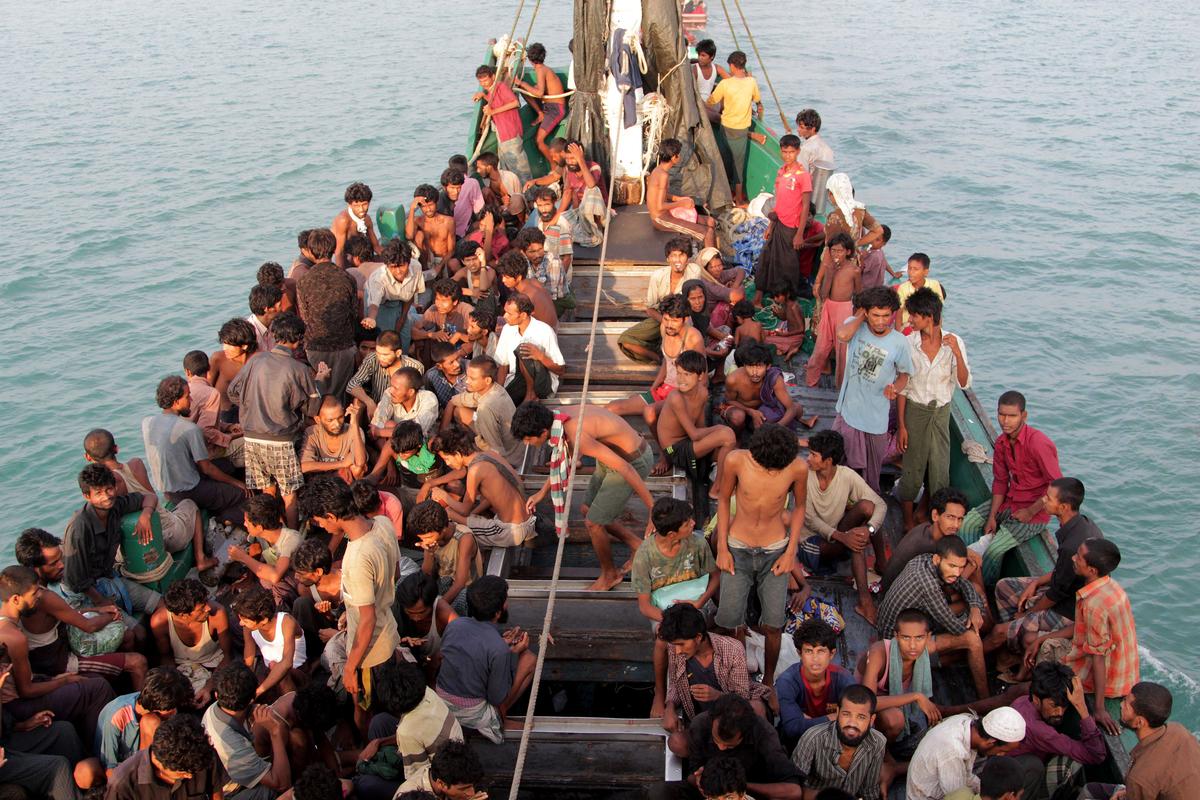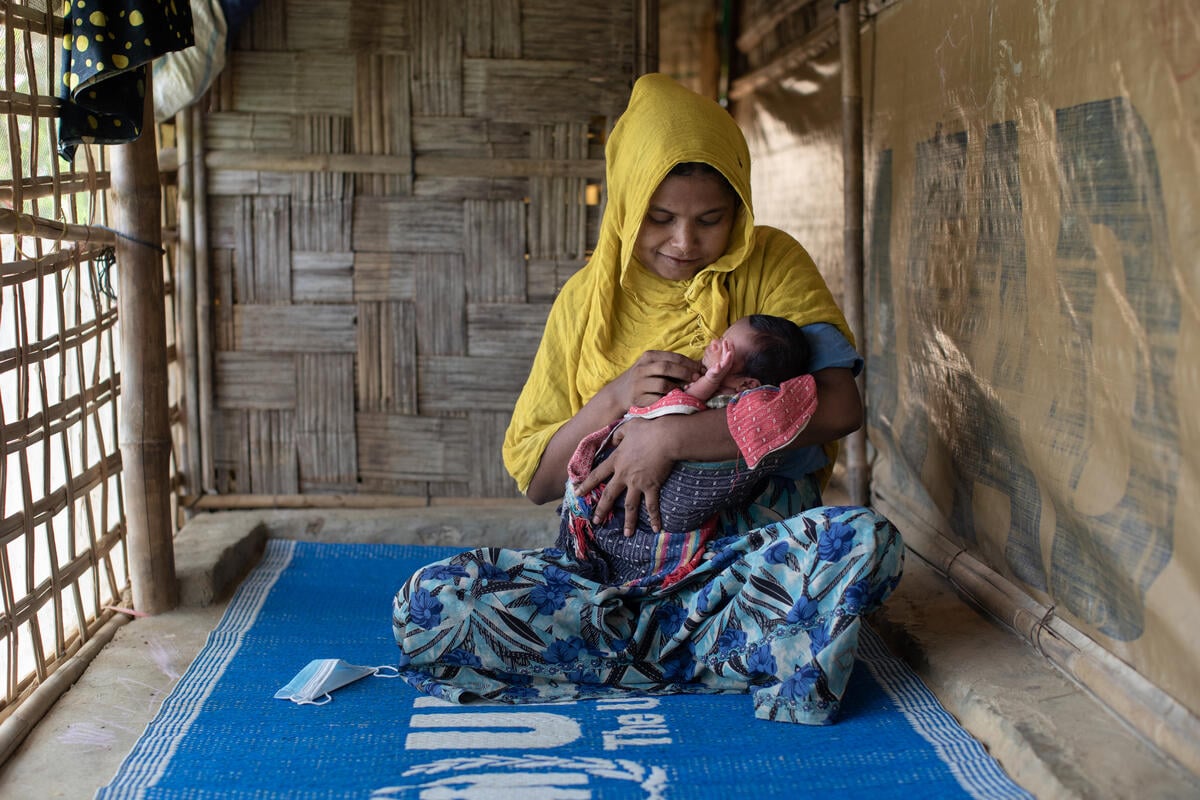UNHCR thanks Indonesia and Malaysia for rescue and disembarkation of Rohingya refugees, calls on countries in the region to comply with maritime search and rescue obligations
UNHCR thanks Indonesia and Malaysia for rescue and disembarkation of Rohingya refugees, calls on countries in the region to comply with maritime search and rescue obligations

UNHCR, the UN refugee agency, is grateful to Indonesian and Malaysian authorities for rescuing and disembarking three boats carrying a total of 140 Rohingya refugees who fled Myanmar by sea in April. The refugees are safe and in generally good condition. From preliminary reports we understand that as many as 10 other refugees perished at sea. Since the beginning of the latest Rohingya refugee crisis in August 2017, over 200 lives are estimated to have been lost in the Bay of Bengal, mainly in the crossing from Myanmar to Bangladesh.
UNHCR has access to the recent arrivals in Indonesia and has received assurances from Malaysian authorities that it will soon be granted access to those in Malaysia as well. UNHCR is deeply appreciative of the Indonesian fishermen and authorities who have provided lifesaving assistance to these refugees.
The three boats set sail from the central townships of Rakhine State in Myanmar. They are the first confirmed maritime movements of Rohingya refugees through the Andaman Sea since May 2015, when interceptions and delays in the disembarkation of several thousand refugees and migrants led to dozens of deaths at sea.
UNHCR is concerned by the accounts of some of the recently disembarked refugees that their vessels were intercepted by authorities who did not disembark them to the nearest place of safety. Such practices not only put the lives of refugees at risk, but may also contravene international maritime law.
“To prevent any further loss of life, UNHCR calls on all governments in the region to uphold their maritime obligations and the spirit of the 2016 Bali Declaration by rescuing refugees, disembarking them to the nearest places of safety, and refraining from risky interceptions at sea not intended to save lives,” said James Lynch, UNHCR’s Regional Representative and Regional Coordinator for South-East Asia.
The first of the three vessels landed in Langkawi, Malaysia, on 3 April after briefly stopping in southern Thailand and being escorted back to sea by Thai authorities. It is yet unclear whether this was done on the refugees’ own volition. The 56 refugees on board—18 women, 19 men, and 19 children—are now detained in Belantik Immigration Detention Centre.
The second boat was rescued by Indonesian fishermen with five survivors: one woman, two men, and two children. They were brought to shore in Langsa, Indonesia, on 6 April and have been registered by UNHCR. The survivors told UNHCR they were intercepted by Myanmar authorities, and that as many as 10 other refugees on their vessel later died or went missing at sea.
A third boat carrying 79 Rohingya refugees—12 women, 31 men, and 36 children—was rescued by Indonesian fishermen and landed in Bireuen, Indonesia, on 20 April. UNHCR is registering this group and has been working with local authorities to provide medical care, food, and temporary shelter. Several refugees from this group have said they were intercepted by Thai authorities.
Although Rohingya communities have reported that other boats may be at sea, UNHCR cannot confirm the presence of any Rohingya boats currently sailing to or through the Andaman Sea. In past years that saw much larger maritime movements of Rohingya refugees and Bangladeshi migrants, such movements declined during the rainy season due to unsafe sailing conditions. Thousands of Rohingya refugees nevertheless continue to cross into Bangladesh each month, many by river and sea on makeshift rafts and boats that have often capsized, killing over 200 refugees since August.
UNHCR reiterates its calls on the Government of Myanmar to take measures to address the root causes of displacement, in line with the recommendations of the Advisory Commission on Rakhine State, so that its Rohingya community is not compelled to flee and embark on such dangerous journeys. This requires concrete progress in relation to their legal status and citizenship, security, and their ability to enjoy basic rights at home in Rakhine State, including in the central townships of Rakhine State from where these three vessels departed.
For more information on this topic, please contact:
- In Bangkok, Keane Shum, shum@unhcr.org, +66 92 275 2585
- In Jakarta, Mitra Suryono, suryono@unhcr.org, +62 811 136 1046
- In Kuala Lumpur, Yante Ismail, ismaily@unhcr.org, +60 13 352 6286
- In Geneva, Andrej Mahecic, mahecic@unhcr.org, +41 79 642 9709









